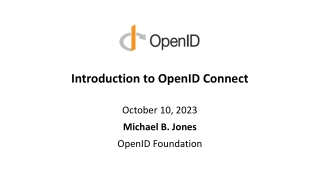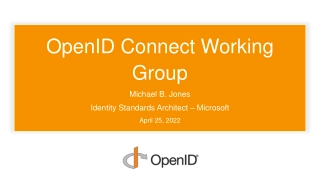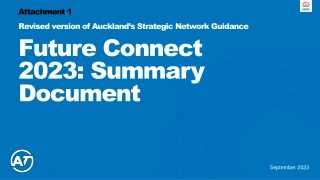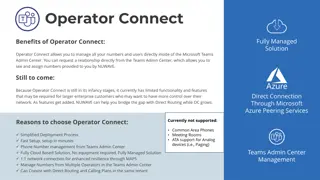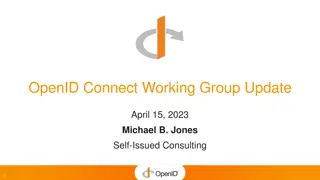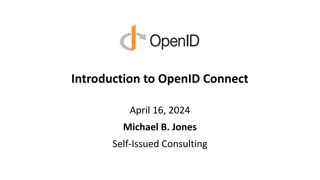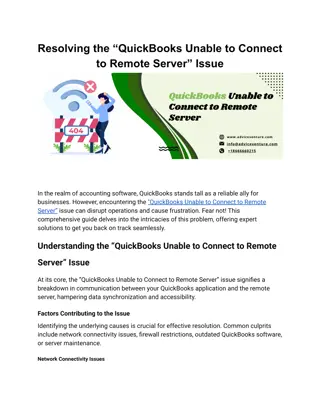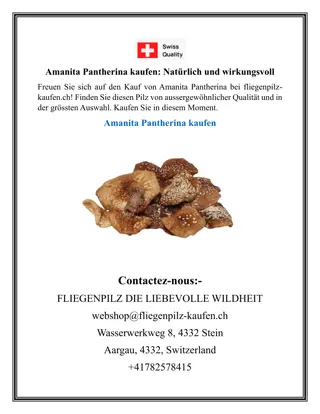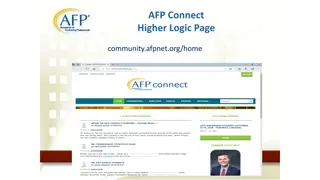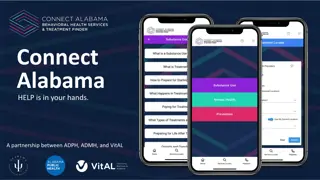
Keynote-177 Study: Pembrolizumab vs. Chemotherapy for Colorectal Cancer
"Explore the Keynote-177 study comparing pembrolizumab with standard chemotherapy as first-line therapy for metastatic colorectal cancer due to mismatch repair deficiency. Learn about the trial design, endpoints, and significant findings in MSI-H CRC treatment options."
Download Presentation

Please find below an Image/Link to download the presentation.
The content on the website is provided AS IS for your information and personal use only. It may not be sold, licensed, or shared on other websites without obtaining consent from the author. If you encounter any issues during the download, it is possible that the publisher has removed the file from their server.
You are allowed to download the files provided on this website for personal or commercial use, subject to the condition that they are used lawfully. All files are the property of their respective owners.
The content on the website is provided AS IS for your information and personal use only. It may not be sold, licensed, or shared on other websites without obtaining consent from the author.
E N D
Presentation Transcript
MEETING SUMMARY ASCO 2020, VIRTUAL MEETING Assoc. Prof. Shubham Pant, MD University of Texas MD Anderson Cancer Center Department of Investigational Cancer Therapeutics, Division of Cancer Medicine, Houston, Texas, USA HIGHLIGHTS FROM GI CONNECT May 2020 2
DISCLAIMER Please note: Views expressed within this presentation are the personal opinions of the author. They do not necessarily represent the views of the author s academic institution or the rest of GI CONNECT group. This content is supported by an Independent Educational Grant from Bayer. Disclosures: Assoc. Prof. Shubham Pant has the following financial relationships to disclose: Xencor, 4D, Tyme 3
PEMBROLIZUMAB VERSUS CHEMOTHERAPY FOR MICROSATELLITE INSTABILITY- HIGH/MISMATCH REPAIR DEFICIENT METASTATIC COLORECTAL CANCER: THE PHASE 3 KEYNOTE-177 STUDY Andre T, et al. ASCO 2020. Abstract #LBA4. Oral presentation 4
BACKGROUND Introduction A subset of CRC are characterised by dMMR resulting in MSI CRCs with MSI-H high levels of lymphocyte infiltrates high expression of PD-1 and PD-L11 KEYNOTE-016 study (Phase 2) Pembrolizumab (anti PD-1 antibody) showed ORR of 40% in patients with progressive dMMR mCRC vs 0% in patients with MMR-proficient mCRC2 KEYNOTE-177 (Phase 3) Designed to evaluate the efficacy and safety of pembrolizumab vs standard- of-care chemotherapy as first-line therapy for dMMR or MSI-H mCRC CRC, colorectal cancer; dMMR, mismatch repair deficiency; mCRC, metastatic colorectal cancer; MSI, microsatellite instability; MSI-H, microsatellite instability-high; ORR, overall response rate; PD-1, programmed death-1; PD-L1, programmed death ligand-1 1. Llosa NJ, et al Cancer Discov 2015;5:43-51 2. Le DT, et al. N Engl J Med2015;372(26):2509-20 5
TRIAL DESIGN KEYNOTE-177 (NCT02563002): 2-arm, randomised, open-label, phase 3 study Pembrolizumab 200 mg IV Q3W n=153 Randomisation 1:1 Some eligibility criteria Treatment naive mCRC dMMR or MSI-H ECOG PS 0-1 No active brain metastases Investigator s choice* mFOLFOX6 +/- Bev or cetuximab FOLFIRI +/- Bev or cetuximab n=154 307 patients Treatment Duration: until PD, unacceptable toxicity, patient/investigator decision to withdraw, or completion of 35 cycles (pembrolizumab only) Primary endpoints: Secondary endpoints: PFS (RECIST v1.1, central review) and OS ORR (RECIST v1.1, central review) and safety * Patients with progressive disease have the option of receiving pembrolizumab 200 mg IV q3wk Bev, bevacizumab; ECOG PS, Eastern Cooperative Oncology Group performance status; dMMR, mismatch repair deficiency; FOLFIRI, leucovorin + irinotecan + 5- fluorouracil; IV, intravenously; mFOLFOX6, modified oxaliplatin + leucovorin + 5-fluorouracil; MSI-H, microsatellite instability-high; ORR; overall response rate; OS, overall survival; PD, disease progression; PFS, progression-free survival; Q3W, every 3 weeks; RECIST, Response evaluation criteria in solid tumours 6
RESULTS Data cut-off date: Feb 19, 2020 Primary endpoint Pembro Chemo Median PFS (months) 16.5 8.2 HR (95% CI) 0.60 (0.45-0.80) P-value 0.0002 12-months PFS rates 55.3% 37.3% 24-months PFS rates 48.3% 18.6% Secondary endpoints Pembro Chemo ORR 43.8% 33.1% Median DoR (months) NR 10.6 Grade 3-5 TRAE rates 22% 66%* * One patient in the chemo arm died due to a treatment-related AE. CI, confidence interval; chemo, chemotherapy; DoR, duration of response; HR, hazard ratio; ORR; overall response rate; pembro, pembrolizumab; PFS; progression-free survival; TRAE, treatment-related adverse event 7
CONCLUSIONS PEMBROLIZUMAB = THE NEW STANDARD OF CARE IN 1-L FOR mCRC PATIENTS WITH dMMR OR MSI-H? Pembrolizumab provided a clinically meaningful and statistically significant improvement in PFS versus chemotherapy as first-line therapy for patients with MSI-H/dMMR mCRC, with fewer treatment-related AEs observed The study is ongoing in order to evaluate the OS 1-L, first line; AEs, adverse events; dMMR, mismatch repair deficiency; mCRC, metastatic colorectal cancer; MSI-H, microsatellite instability-high; OS, overall survival; PFS, progression-free survival 8
PEMBROLIZUMAB VERSUS PACLITAXEL FOR PREVIOUSLY TREATED PATIENTS WITH PD-L1 POSITIVE ADVANCED GASTRIC OR GASTROESOPHAGEAL JUNCTION CANCER (GC): UPDATE FROM THE PHASE III KEYNOTE-061 TRIAL Fuchs CS, et al. ASCO 2020. Abstract #4503. Oral presentation PD-L1, programmed death ligand-1 9
BACKGROUND Standard second-line therapy for gastric/GEJ cancer: Combination therapy: ramucirumab + paclitaxel Monotherapy: docetaxel, paclitaxel or irinotecan KEYNOTE-061 (NCT02370498) is a global phase 3 study of pembrolizumab vs paclitaxel as second-line therapy for gastric/GEJ cancer Results (primary analysis: Oct 26, 2017)1: In patients with CPS 1: pembrolizumab did not significantly prolong OS vs paclitaxel (9.1 vs 8.3 months) DoR: substantially longer with pembrolizumab vs paclitaxel (18.0 vs 5.2 months) Longer-term results after additional 2 years of follow up are presented; CPS 1, CPS 5 and CPS 10 patient data are also assessed CPS, combined positive score; DoR; duration of response; GC, gastric cancer; GEJ, gastroesophageal junction; OS, overall survival 1. Shitara K, et al. Lancet 2018;392:123-33 10
RESULTS: EFFICACY BY CPS Data cut-off date: Oct 7, 2019 Pembro CPS 1 n=196 Paclitaxel CPS 1 n=199 Pembro CPS 5 n=95 Paclitaxel CPS 5 n=91 Pembro CPS 10 n=53 Paclitaxel CPS 10 n=55 OS, deaths, n (%) 176 (89.8) 190 (95.5) 84 (88.4) 86 (94.5) 44 (83.0) 51 (92.7) OS, months, median (95% CI) 9.1 8.3 10.4 8.3 10.4 8.0 (6.2-10.7) (7.6-9.0) (6.7-15.5) (6.8-9.4) (5.9-18.3) (5.1-9.9) 0.81 0.72 0.69 HR (95% CI) (0.66-1.00) (0.53-0.99) (0.46-1.05) P value 0.03 0.02 0.04 PFS, months, median (95% CI) 1.5 4.1 1.6 4.0 2.7 4.0 (1.4-2.0) (3.2-4.3) (1.4-2.8) (2.8-4.4) (1.4-4.3) (2.7-4.4) 1.25 0.98 0.79 HR (95% CI) (1.02-1.54) (0.71-1.34) (0.51-1.21) ORR, % (n) 16.3 (32) 13.6 (27) 20.0 (19) 14.3 (13) 24.5 (13) 9.1 (5) DoR, months, (range) 19.1 5.2 32.7 4.8 NR 6.9 (1.4+ to 47.1+) (1.3+ to 16.8) (4.1 to 47.1+) (1.3+ to 15.3) (4.1 to 47.1+) (2.6 to 6.9) CI, confidence interval; CPS, combined positive score; DoR, duration of response; HR, hazard ratio; ORR; overall response rate; OS, overall survival; NR, not reached; Pembro, pembrolizumab; PFS, progression-free survival 11
CONCLUSIONS AS 2-L THERAPY, PEMBROLIZUMAB CAN BE BENEFICIAL FOR PD-L1- POSITIVE GC PATIENTS After 2 additional years of follow up: pembrolizumab did not significantly improve OS and PFS over paclitaxel (consistent with primary analysis) Response rates were numerically higher and more durable with pembrolizumab Treatment with pembrolizumab resulted in fewer treatment-related AEs With increasing PD-L1 enrichment among GC patients: Second-line pembrolizumab prolonged OS Pembrolizumab treatment effect increased for ORR and DoR 2-L, second line; AEs, adverse events; DoR, duration of response; GC, gastric cancer; ORR, overall response rate; OS, overall survival; PFS, progression-free survival; PD-L1, programmed death ligand-1 12
REGOMUNE: A PHASE II STUDY OF REGORAFENIB PLUS AVELUMAB IN SOLID TUMOURS RESULTS OF THE NON-MSI-H METASTATIC COLORECTAL CANCER (mCRC) COHORT Cousin S, et al. ASCO 2020. Abstract #4019. Poster presentation MSI-H, microsatellite instability-high 13
BACKGROUND Regorafenib has anti-immunosuppressive property1 Synergy between regorafenib and anti PD-1/PD-L1 antibodies has been shown in pre-clinical models1 Combination strategy studies initiated with regorafenib and anti-PD-1/PD-L1: Studies Phase Location Status 36% ORR CRC2 44% ORR GC2 REGONIVO: regorafenib and nivolumab simultaneous combination therapy (NCT03406871) 1b Japan REGOMUNE: a phase I/II study of regorafenib plus avelumab in solid tumours (NCT03475953) 1/2 France Data on mCRC presented here Regorafenib and pembrolizumab in treating participants with advanced or metastatic colorectal cancer (NCT03657641) 1/2 USA Ongoing CRC, colorectal cancer; GC, gastric cancer; ORR, objective response rate; PD-1, programmed death-1; PD-L1, programmed death ligand-1 1. Arai H, et al. Cancer Treat Rev 2019;81:101912; 2. Fukuoka S, et al. J Clin Oncol 2020;JCO1903296 14
TRIAL DESIGN REGOMUNE (NCT03475953): Single arm, open-label, phase 1/2 study Phase 1:defined the recommended phase II dose of regorafenib with avelumab Phase 2:assessment of the antitumour activity of regorafenib with avelumab in various cohorts regorafenib (160 mg QD 3 weeks/4) + avelumab (10 mg/kg IV every 2 weeks) Cohorts Until PD by RECIST v1.1 A: mCRC not MSI-H or dMMR B: GIST C: Oesophageal or gastric carcinoma D: Biliary tract cancer, HCC E: Soft-tissue sarcoma F: RR-DTC G: GEP-NETs Primary endpoint: 6-months ORR (RECIST v1.1, central review) Secondary endpoints: best overall response, 6-month PFS, PFS, OS and safety dMMR, mismatch repair deficiency; GEP-NETS, Neuroendocrine gastroenteropancreatictumours; GIST, gastrointestinal stromal tumour; HCC; hepatocellular carcinoma; IV, intravenously; mCRC, metastatic colorectal cancer; MSI-H, microsatellite-instability high; ORR, objective response rate; OS, overall survival; PFS, progression-free survival; QD, every day; RECIST, Response evaluation criteria in solid tumours; RR-DTC, Radioiodine-refractory differentiated thyroid cancer 15
RESULTS Period of investigation: Nov. 2018 to Oct. 2019 Cohort assessed: Cohort A: mCRC patients Number of patients enrolled: 48 patients The most common grade 3/4 AEs: palmar-plantar erythrodysesthesia syndrome (30%) hypertension (23%) diarrhoea (13%) Overall population: Best response: SD in 23 pts (53.5%) and PD in 17 pts (39.5%) Median PFS: 3.6 months (CI 95%: 1.8 5.4) Median OS: 10.8 months (CI 95%: 5.9 NA) Subgroup with low TAMs infiltration and low tumour cells to CD8+ T-cells distance: Median PFS: 5.3 vs 1.9 months (p=0.037) Median OS: NR vs 5.3 months (p=0.02) AEs, adverse events; CI, confidence interval; mCRC, metastatic colorectal cancer; NA, not available; OS, overall survival; PD, disease progression; PFS, progression-free survival; pts, patients; SD, stable disease; TAMs, tumour-associated macrophages 16
CONCLUSIONS Regorafenib + avelumab achieved PFS and OS that compared favourably with historical data of regorafenib alone in this clinical setting High-resolution analysis of tumour samples identified a composite score based on TAMs infiltration and tumour cell to CD8+ T-cells distance which could be used as a biomarker in further studies investigating this approach in mCRC patients mCRC, metastatic colorectal cancer; OS, overall survival; PFS, progression-free survival; TAMs, tumour-associated macrophages 17
REACH GI CONNECT VIA TWITTER, LINKEDIN, VIMEO & EMAIL OR VISIT THE GROUP S WEBSITE http://www.giconnect.info Follow the GI CONNECT group on LinkedIn Watch us on the Vimeo Channel GI CONNECT Email Follow us on Twitter @giconnectinfo antoine.lacombe @cor2ed.com 18
GI CONNECT Bodenackerstrasse 17 4103 Bottmingen SWITZERLAND Dr. Froukje Sosef MD +31 6 2324 3636 froukje.sosef@cor2ed.com Dr. Antoine Lacombe Pharm D, MBA +41 79 529 42 79 antoine.lacombe@cor2ed.com Heading to the heart of Independent Medical Education Since 2012


